|
|
|
|
Many Melburnians are sad, angry and afraid amid their fourth lockdown in 18 months. Adding to Melburnians’ collective frustration are claims the state is more susceptible to COVID, or that they’re the nation’s “lockdown capital”. Many people have wondered if there’s something about Melbourne’s demographics or culture that encourages the spread of this virus more than other parts of Australia.
But two leading epidemiologists, Nancy Baxter and Tony Blakely from the University of Melbourne, debunk this thoroughly. They write: “Life is random, and COVID is very much so. A difference in seemingly innocuous circumstances can lead to very different outcomes”. It’s unlikely Victoria is doing anything that makes them more likely to have outbreaks leading to lockdowns, it’s more likely bad luck.
And while commentary has suggested transport, age, migrant population and other factors may explain why Victoria has struggled more with COVID outbreaks than NSW, demographer Liz Allen says actually the two states are pretty similar on these fronts.
For those in Melbourne, the question of why is currently less important than how they’ll get through it again. Jill Newby and Peter Baldwin set out some useful strategies to help you look after your mental health and well-being during this time.
And the federal government has stepped in with some financial relief for those suffering. Welfare expert Peter Whiteford explains who can get it and who misses out.
|
Liam Petterson
Deputy Editor, Health + Medicine
|

|
|
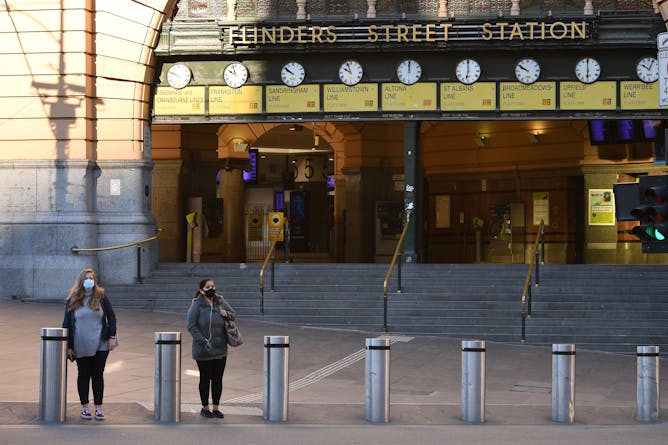
James Ross/AAP
Nancy Baxter, The University of Melbourne; Tony Blakely, The University of Melbourne
Chance matters. It's unlikely Victoria is doing anything that 'makes us' more likely to have outbreaks leading to lockdowns.
|
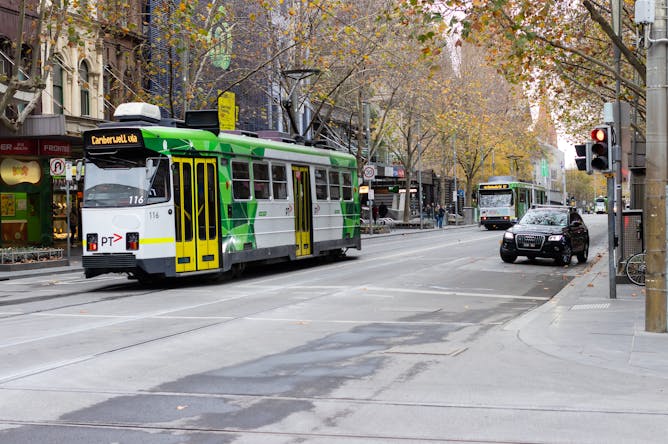
Shutterstock
Liz Allen, Australian National University
Recent commentary has suggested transport, age, jobs, migrant population and other factors among the reasons that may help explain the difference. What does the data say?
|

Shutterstock
Jill Newby, UNSW; Peter Baldwin, Black Dog Institute
From the things you choose to focus on, to the support you seek from others, to the way you look after your physical health — these coping strategies could help you through Melbourne's latest lockdown.
|
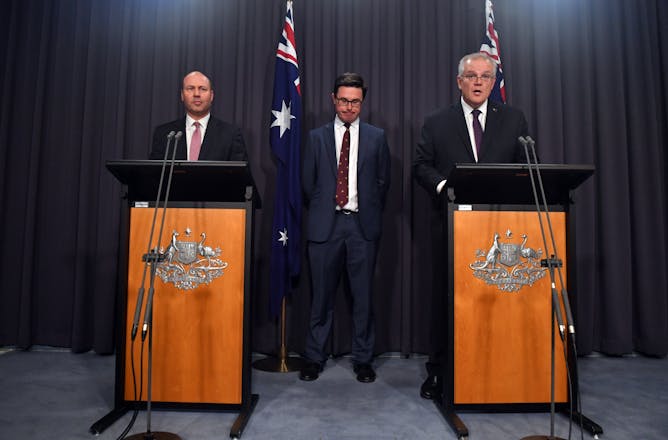
Mick Tsikas/AAP
Peter Whiteford, Crawford School of Public Policy, Australian National University
The Morrison government announced the payment on Thursday. A significant group of Australians will not be eligible to apply.
|
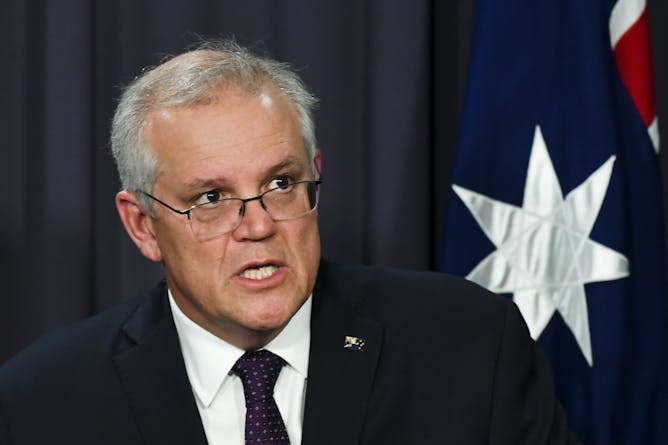
Lukas Coch/AAP
Michelle Grattan, University of Canberra
Scott Morrison operates on well-tried “whatever it takes” principle - “what it takes” in the COVID era is never-ending public money and policy flexibility, writes Michelle Grattan
|
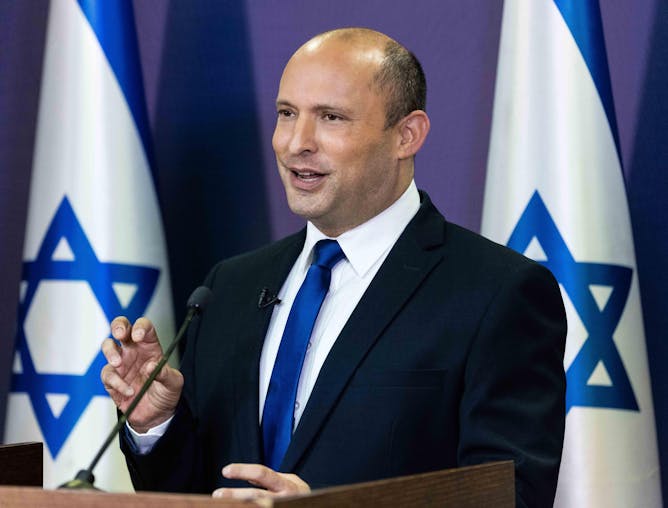
The leader of the Yemina party, Naftali Bennett, who would become prime minister for two years in the new power-sharing arrangement.
Yonatan Sindel/Pool/EPA
Ian Parmeter, Australian National University
The new governing coalition will likely not further negotiations on a two-state solution. Would Palestinians consider a one-state solution instead?
|
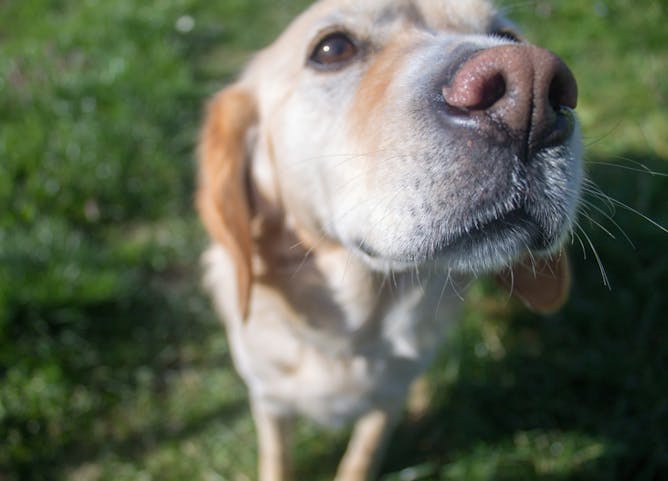
from www.shutterstock.com
Hassan Vally, La Trobe University
Who's a good doggie? Sniffer dogs might one day be able to screen people for COVID-19 in large crowds. But not when they're hungry or need a good lie down.
|
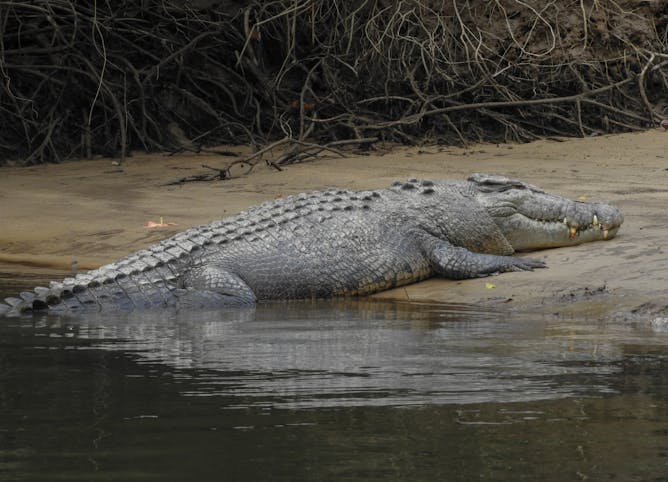
A crocodile known locally as ‘Barrat’ emerges from the water of the lower Daintree River, Far North Queensland.
Kevin Crook
Michael Bradley, James Cook University
For an ecologist working in a tangle of creeks in North Queensland, crocodiles are a tangible threat. We are food to them, yet we must learn to co-exist with these creatures.
|
|
|
Education
|
-
Chris Hickey, Deakin University
At the heart of accusations of a crowded curriculum are concerns key areas — such as literacy and numeracy — will be compromised by an insidious creep towards content such as gender issues.
|
|
Environment + Energy
|
-
Vanessa Pirotta, Macquarie University
Bubble-net feeding is when whales blow bubbles from their nose to encircle their food, trapping their prey into a tight ball. A citizen scientist was the first to capture this behaviour in Australia.
-
Kylie Soanes, The University of Melbourne
When a big old tree dies or is cut down, even if we plant a new one we might have to wait hundreds of years before it provides a good possum house.
|
|
Science + Technology
|
-
Tess Parker, Monash University; Ailie Gallant, Monash University
'Thirsty air' can create rapid and devastating drought – new research offers hope we might be able to see it coming in advance.
-
Shane Cronin, University of Auckland; David Dempsey, University of Canterbury
One of the lessons we must take from the Whakaari tragedy is the cumulative nature of risk. Repeated visits to the volcanic island by tour guides placed them near unacceptable risk limits.
|
|
Politics + Society
|
-
Katie Pickles, University of Canterbury
New Zealand's honours system has come a long way since colonial times. But a glaring gender imbalance reminds us of its historical origins.
-
Bonita Mason, University of South Australia
George Floyd’s death and the US Black Lives Matter movement sparked extensive media attention. Why aren't Australian Indigenous deaths in custody getting the same amount of media coverage?
-
Rachael Burgin, Swinburne University of Technology; Bri Lee, University of Sydney; Jonathan Crowe, Bond University
There are calls for a new offence, to cover cases where an alleged offender engages in non-consensual sex through recklessness.
-
Laura Mills, University of the Sunshine Coast; James Freeman, University of the Sunshine Coast; Verity Truelove, University of the Sunshine Coast
New evidence suggests some motorists recognise the risks associated with speeding, but continue to offend anyway.
|
|
Cities
|
-
John Stone, The University of Melbourne; Iain Lawrie, The University of Melbourne; Nat Manawadu, The University of Melbourne
Transport is the one sector where Australia hasn't reined in the growth in greenhouse gas emissions. Electric cars will cut emissions but still leave us with all the other problems of car use.
|
|
Arts + Culture
|
-
Huw Griffiths, University of Sydney
When the future is clearly changing but we can't focus on tomorrow, should we just keep dancing? Pamela Rabe anchors the absurdity of The Cherry Orchard.
|
|
| |
Featured jobs
|
|
|
| |
| |
| |
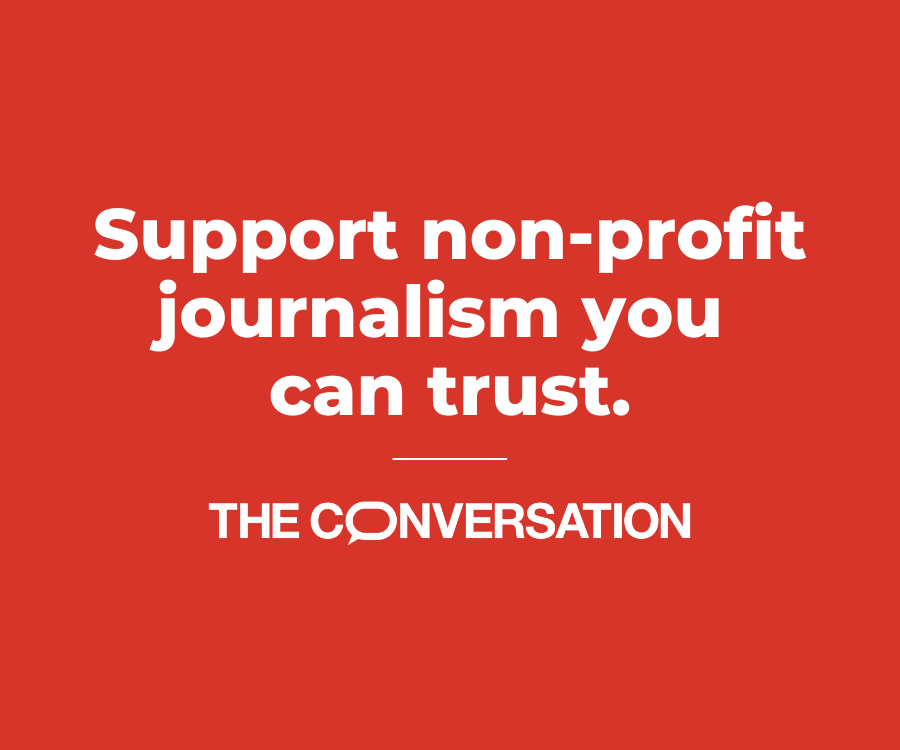
|
| |
| |
| |
Featured Events & Courses
|

|
191 Boundary St, West End, Queensland, 4101, Australia — The Conversation
|

|
Online, Perth, Western Australia, 6009, Australia — The University of Western Australia
|

|
Online Webinar, Hobart, Tasmania, 7000, Australia — University of Tasmania
|

|
Skyroom, Level 14, 30 Collins Street, Melbourne, Victoria, 3000, Australia — Monash University
|
|
|
|
| |
| |
| |
| |
| |
|
|
|
|
|
|
|